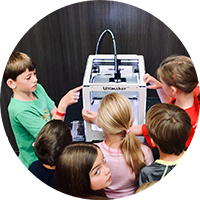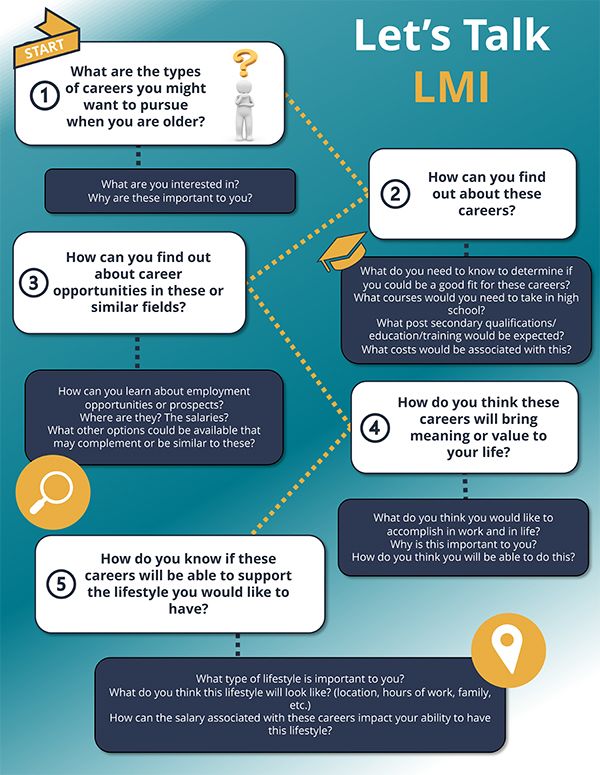"What do you want to be when you grow up?" The pressure children and young adults may feel to provide the “right answer” to this question can be overwhelming particularly when they are just beginning to learn about who they are and what it is they might like to do with their lives. The fact is, they will experience multiple careers throughout their lives with no one career defining who they are. Realistically, the career(s) they may end up pursuing may not yet even exist.
It is also important to remember that their career is what they will do (hopefully something they will enjoy doing) and is just one of many goals they will set for themselves. Other goals that will evolve along with their careers include lifestyle, family, where they live, etc. As influencers in their lives, consider how you can reframe this question to become less definitive and more open as you support today’s children and young adults in exploring career options and what they need to do to pursue and achieve their goals. And just as important, you will need to help them understand the importance of being agile and resilient so they are prepared to handle consequences of their decisions.
TIPS for supporting children in exploring careers:
- Help them discover their strengths, interests and passions;
- Engage them in discussion about what interests them (you can even expose them to different activities to see what draws them in);
- Focus on skills and behaviour rather than specific jobs;
- Consider their points of view and show your support by being open minded, patient and encouraging;
- Talk to them about your job and what it looks like; you can also draw on your network to introduce them to mentors who can talk about their jobs and help broaden their understanding of work and careers;
- Encourage goal setting so they understand how to develop a plan (but also help them understand plans change!).
Strategies to help students learn about careers and develop skills:
Young Children (Elementary to Middle School)
-
Use play to provide opportunities for young children to explore skills and careers;
-
Promote inquisitiveness and reflection - ask children about what they see and know, have fun and creative conversations about what the future could look like;
-
Look for or create opportunities to discuss and explore a broad range of careers; there are many opportunities in your communities that you can investigate and discuss together;
-
Talk to them about what it means to set goals; help them set small short term goals and track their progress.

Young Adults (Middle School to High School)
-
Have conversations about the skills they are developing at school, through volunteering, being part of a team or community group, or at their part time jobs - help them make connections between these skills and their future;
-
Promote participation in career days, post-secondary campus tours and open houses, job shadow/ mentorship experiences, work site visits, etc.;
-
Investigate career education course offerings at their schools;
-
Ask questions, listen closely to their thoughts and ideas;
-
Be involved and supportive in the goal setting process.

Provinces
Click on your province to be taken directly to the provincial website for Labour Market Information. To access federal Labour Market Information found on the Government of Canada website, click here.




